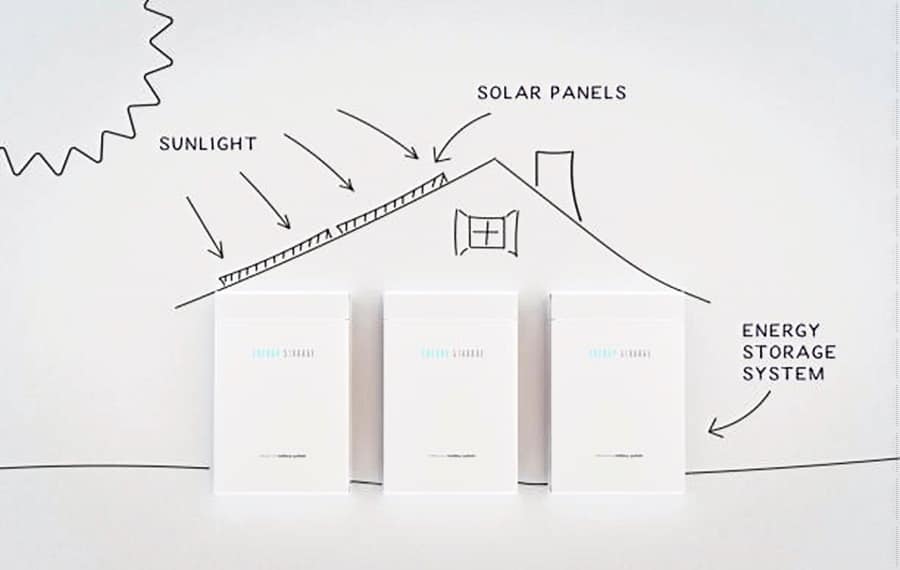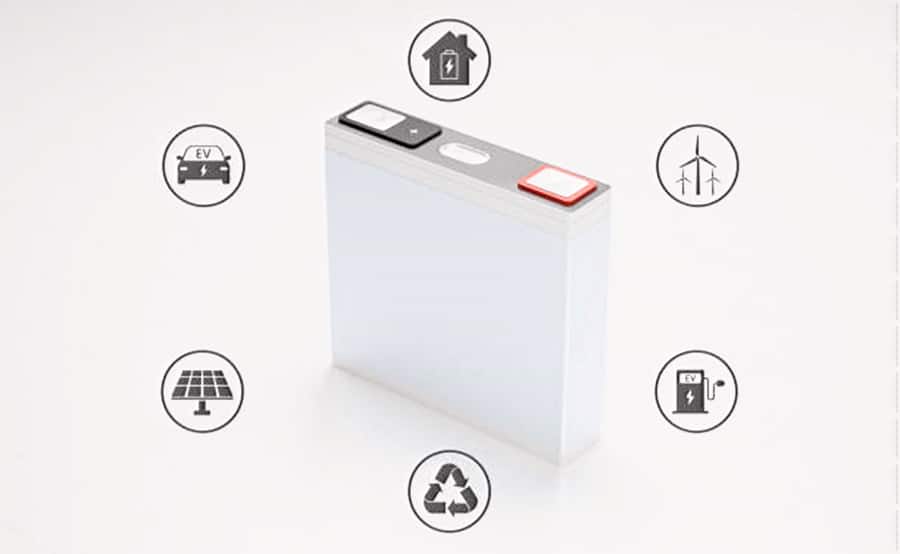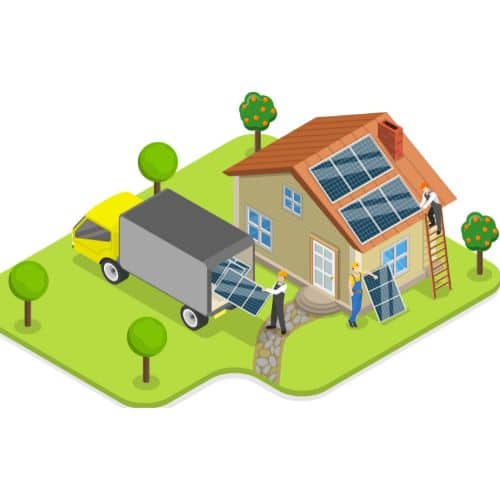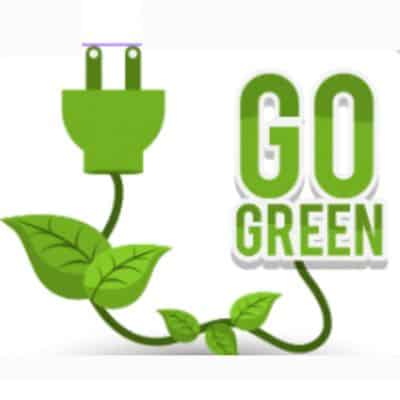Australia, bathed in abundant sunshine, is a natural champion for solar energy. But what happens when the sun sets or clouds roll in? That’s where storing solar power comes in, unlocking the full potential of this clean, renewable resource. Let’s delve into the fascinating world of solar energy storage, exploring technologies, benefits, considerations, and the exciting future ahead.
Unleash the potential of solar battery storage! Are you ready to transform the way you power your business or household? Say goodbye to rising electricity costs and unpredictable energy grids. The state-of-the-art solar battery systems empower you to maximise energy efficiency, save money, and reduce your carbon footprint while enjoying an uninterrupted power supply.
Let us discuss and choose the best quote that suits your needs and budget, and we can connect you with our trusted local installers, who will provide up to 3 FREE quotes for your business solar and home battery system.
Can solar energy be stored?
Absolutely! While solar panels efficiently convert sunlight into electricity, using it all immediately is only sometimes feasible. Thankfully, various technologies allow us to capture and store solar energy for later use. This empowers homes and businesses to achieve greater energy independence, reduce grid reliance, and save money on electricity bills.
How is solar energy stored?
Several methods exist for storing solar energy in Australia, each with its own advantages and limitations.
1. Rooftop and battery energy storage system (BESS)
- Rooftop batteries: Australians are leading the charge in home solar, with over 3 million systems installed. Many integrate batteries, like Lithium-ion, to capture excess daytime generation. But what about nighttime or cloudy periods? That’s where storing solar power comes in.
- Home battery systems: Smaller versions for homes store solar power generated by rooftop panels, allowing homeowners to use it later, reducing grid reliance and potentially lowering electricity bills.

- Utility-Scale BESS: Large-scale Battery Energy Storage Systems (BESS) are emerging across the country, often paired with solar farms. These mega-batteries soak up surplus solar power during peak generation, then release it strategically to meet evening demand peaks and grid stability needs and even participate in energy markets.
- Combined power: The synergy is powerful! Rooftop and BESS solutions work together to maximise storing solar power. Homes can utilise their batteries first, then tap into the grid or BESS when needed. This distributed approach strengthens the grid and paves the way for a more sustainable future.
Use our easy-to-use solar power and battery storage calculator to determine the size of your solar system with storage! Our solar calculator will generate performance information and potential savings.
We can send this information to 3 trusted local installers in your area to receive obligation-free solar quotes.

2. Pumped Hydroelectricity (PHES)
This large-scale technology stores energy by pumping water uphill during off-peak hours and releasing it through turbines to generate electricity during peak demand. While highly efficient and reliable, pumped hydroelectricity (PHES) requires specific geographical features and significant infrastructure investment.
3. Compressed Air Energy Storage (CAES)
Similar to PHES, CAES stores energy by compressing air into underground caverns and releasing it to drive turbines when needed. This technology is still under development but offers promising long-duration storage potential.
Read more about:
- Air compression to be used in the world’s largest non-hydro energy storage system
- The Least-Cost Analysis for Deeply Decarbonized Power Systems: Optimising Energy Storage for a Greener Future.
4. Hydrogen storage
Surplus solar energy can produce hydrogen through electrolysis. This versatile fuel can be stored and used for various applications like transportation or generating electricity in fuel cells. While promising, hydrogen infrastructure is still evolving.
5. Solar thermal storage
Concentrated solar thermal plants (CSP) capture heat using mirrors, storing it in molten salts or other materials for later electricity generation. While less common, this technology offers long-duration storage potential. This technology is particularly useful for large-scale applications but requires specialised equipment.
Choosing the right storage solution: Factors to consider
Selecting the ideal solar energy storage solution depends on your specific needs and budget. Here are key factors to weigh:
- Energy requirements: Assess your daily or seasonal energy consumption to determine the storage capacity needed.
- Budget: Compare upfront costs, installation fees, and ongoing maintenance for different technologies.
- Lifespan: Consider the expected lifespan of the storage system and potential replacement costs.
- Discharge rate: Ensure the system can deliver enough power to meet your peak demand requirements.
- Technology maturity: Evaluate the trade-off between established technologies and newer options with potentially higher future benefits.
Benefits of storing solar energy
- Increased energy independence: Generate and store your electricity, reducing grid reliance and potential power outages.
- Reduced electricity bills: Use stored solar power during peak hours, potentially avoiding expensive grid tariffs.
- Self-sufficiency: Power your home or business even during extended periods of no sunshine.
- Environmental benefits: Reduce your carbon footprint by relying more on renewable energy.
- Financial incentives: Government rebates and feed-in tariffs can make solar storage more affordable.

The evolving landscape of solar storage in Australia
The solar energy storage landscape in Australia is rapidly evolving. Government incentives, falling battery costs, and technological advancements are driving its widespread adoption.
Rebates and incentives
The Australian government offers various financial incentives and rebates for installing solar battery systems, making them more accessible.
Read more about
- Solar Battery System Rebates, Subsidies, & Incentives
- Home Solar Rebates, Incentives & Subsidies In Australia
- Solar Panel Rebate & Renewable Energy Subsidy Information
- Off Grid And Remote Power System Rebates
- Commercial Solar Rebates, Grants & Incentives
- STCs to Reduce in 2024: How to Maximise Your Savings
- Feed-in Tariffs Keep Getting Lower: Is Solar Still Worth it in 2024?
Virtual Power Plants (VPPs)
Imagine a network of homes and businesses with solar panels and batteries working together as one giant power plant. That’s the essence of a VPP in Australia – a cloud-based system aggregating distributed energy resources like solar, batteries, and even smart appliances.
By combining their power and responding intelligently to grid needs, VPPs stabilise the electricity network, reduce reliance on fossil fuels, and even earn participants extra income. It’s a win-win for the environment, the grid, and your wallet!
Origin Loop VPP
With your installed solar battery, Origin Energy and Energy Matters have partnered to offer consumers an extra chance to save and earn money!
Origin Loop VPP is a smart and simple way to unlock your battery’s potential and get more out of your solar system. If you are interested in joining Origin Loop VPP, don’t hesitate to contact us today and get started.
Read more about:
Technology advancements
Research and development are continuously improving battery efficiency, capacity, and affordability.
Grid integration
Integrating energy storage with smart grids optimises energy distribution and promotes renewable energy sources.
Storing the sun’s promise: A brighter future
With its abundant sunshine and commitment to sustainability, Australia is well-positioned to lead the way in storing solar power. By embracing this technology, we can unlock a future powered by clean, reliable, and affordable renewable energy, benefiting homes, businesses, and the environment.
So, whether you’re a homeowner seeking energy independence or a business owner aiming for sustainability, remember: storing solar energy is not just a possibility, it’s a key to unlocking a brighter, cleaner future.
Read more about:
- How to Determine Whether a Home Solar Battery Could Result in Cost Savings for Your Family
- Solar Battery Buying Guide: How to Make the Right Decision
- Are Solar Batteries Worth the Investment in Australia Right Now?
- Best Solar Battery Australia 2024
- Do Solar Panels Work on Cloudy Days and at Night?
Ready to upgrade your solar systems and take your energy savings to the next level?
Embrace the energy efficiency revolution by upgrading your solar systems and adding battery or solar inverters with Energy Matters.
Energy Matters recommends cost-effective solar batteries such as GoodWe, Enphase, sonnen, Fronius, Fimer, Sungrow, Tesla and LAVO.
With our 3 free solar quotes, you can compare plans from pre-qualified and vetted installers in your area and find the perfect solution for your home and business. Harness the sun’s power and save money on electricity bills while reducing environmental impact. Let Energy Matters guide you towards a brighter, more sustainable future.

Why choose Energy Matters?
- We’ve been in the solar industry since 2005 and have helped over 40,000 Australian households journey to energy independence.
- We’ve pre-qualified and vetted our solar installers, who are accredited for their track record of delivering Australia’s best business and household solar systems.
- We’ll match you with installers who are local to you so you can get a quote that’s tailored to your needs.
Benefits of going solar with Energy Matters

Get up to 3 FREE quotes
We’ll connect you with 3 different solar installers so you can compare prices and services.

Work with trusted installers
We only work with solar installers who have been pre-qualified and vetted for their track record of delivering quality solar systems.

Get peace of mind
We’ll support you every step of the way, from the initial consultation to the final installation. Our team will assist you with the information you need to go solar!
Questions? Contact our team of friendly experts for free, no-obligation advice on the best solar panels, best solar batteries and full systems for your circumstances. You can also generate a quick solar quote or view our current system specials.













































